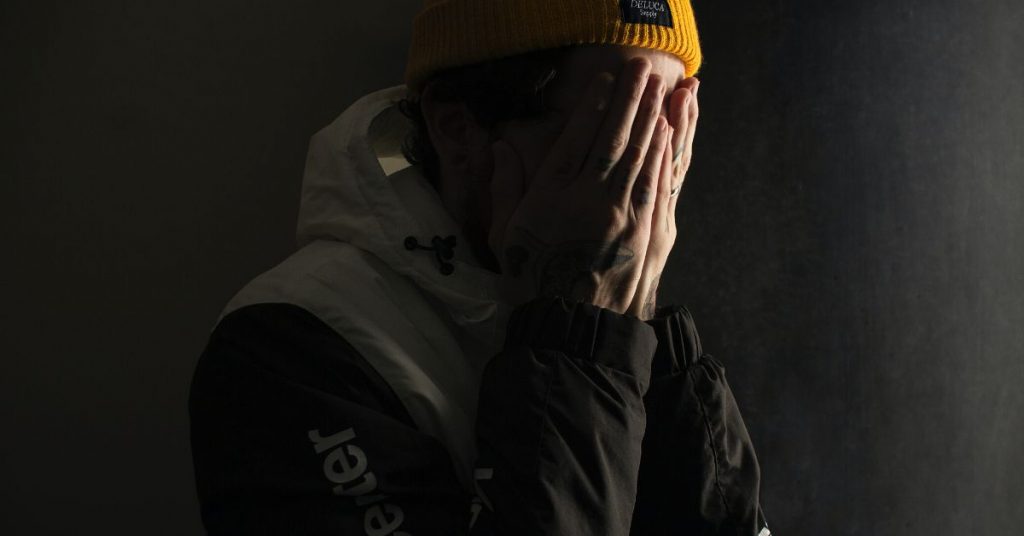I know a thing or two about the addiction cycle… I hope you’re not judging me already!
Of course, when we think of addiction we think of alcohol, drugs, and other things. We think they’re the bad ones, and they are bad, but there are many kinds of addiction.
You can be addicted to sugar, and that might be as harmful as other kinds of addiction. What about being addicted to technology? Or being addicted to love. They can all be highly dangerous.
There are far more people in our society who are addicts than you could ever imagine!
Addiction is like a vicious cycle. Once you get sucked into it it’s very difficult to escape. To break the addiction cycle, you need to understand what fuels it. It is shame that fuels the addiction cycle.
There is a difference between guilt and shame. Guilt is a feeling you get when you perceive that you have done something wrong. On the other hand, shame is not tied to a specific event, but is rather a feeling that your whole self is defective, unworthy, inadequate and wrong. As a result, addiction is, at its core, a desperate cry for acceptance and for love.
Whether or not someone acknowledges the presence of shame in their life, it is a terrible thing to sit in it. Shame is a shadowy and silent vampire that drains the life out of your soul and darkens all hope. This shame is often deeply-rooted in our earliest experiences. It is shame that keeps the addiction cycle going.
Shame is so intolerable, that people will do almost anything to remove the feeling of shame for even a brief time. We will do almost anything to feel accepted and included, rather than rejected and excluded. We will do almost anything to feel good for a change. Fundamentally addictive behaviours are a way of “self-soothing” or “self-medicating.”

That’s how addiction begins, and that is how it is perpetuated in your life. As long as you are on that cycle of addiction, your need for your drug of choice (i.e., your addictive behaviour) will become more entrenched in your neural pathways and will in fact increase over time.
That’s why you simply can’t shame people out of addiction. It doesn’t work that way. The more you shame an addict, the more you are entrenching them in their addiction and misery. Even education and training doesn’t help by themselves.
To place shame and judgment on someone who is struggling with addiction is to fuel the very fires of that addiction. Most addicts know that their lives are messed up and that what they are doing is wrong, and they are desperately trying to escape.
Love People Through Their Struggle
To recover, people don’t need judgment. They need acceptance, as difficult as that might be understand. They don’t need acceptance of their addiction or wrong behaviours. They need acceptance of who they are.
Because shame is a deep feeling that you are totally defective and unworthy, the antidote to shame, and therefore key to breaking the addiction cycle, is connection and inclusion. Connection can exist in a loving relationship, in a church community, or even in a supportive circle of friends. When connection is present, then other interventions and supports can all work together to help a person break the cycle of addiction.
In my own personal story, I found that fully embracing that my identity is established by God, and in his love for me, has been instrumental in my healing. I don’t need acceptance and approval from others. God already approves of me. I am profoundly and eternally loved (Jer. 31:3.) I appreciate that not everyone may have this same understanding of God. However, this has been a very powerful reality in my life that I hold on to, and that I have to remember every day.
Addictive behaviours become hard-wired into a person’s neural processes, and they take time to undo. That why it’s an “addiction cycle.” Although in rare occasions a person can be delivered from addiction from one moment to the next. However, it is much more common that there will be relapses, and even many of them, and over a long time.
This can be a difficult thing for people who are addicts, and for those who love them. If we love them, we have to love them through their struggle.
Jesus Doesn’t Want You to be in Slavery

I remember Mary Magdalene out of whom Jesus cast seven demons (Mark 16:9.) Although we’re not told the details about this, I wonder whether she fell again and again and had to be forgiven and restored by Jesus seven times. I also remember how Peter came to ask Jesus about whether he should forgive someone who had wronged him seven times, and Jesus told him, not seven times, but seventy times seven (Matt. 18:21-22.)
There is a saying that once a person is an addict, and whether that’s alcohol or anything else, it’s true. Such a person may recover, but they will always have a weakness for the object of their addiction.
If you have a family member or a friend who is an addict, then please remember to look after yourself. Do not stay in an environment in which you are in any way exposed to abuse or danger. If you don’t, you can’t help them, and in fact, you are just feeding their addiction.
I understood something as I recovered from my own addiction. I always through that God was looking down disapprovingly at me. Now I realise that when I was at my worst, he was right there with me, with his arm around me, suffering with me. He was with me every step of the way. He always has been.
Finally, whoever you are, remember that God doesn’t want you to live in slavery to anything. This is what I have found in my own life. Jesus is enough for me, no matter how bad things get in this world. And Jesus is enough for you too.
Article supplied with thanks to Dr Eliezer Gonzalez.
About the Author: Dr Eli Gonzalez is the Senior Pastor of Good News Unlimited and the presenter of the Unlimited radio spots, and The Big Question. Sign up to his free online course called Becoming a Follower of Jesus to learn about Jesus and His message.
Feature image: Photo by Tobias Tullius on Unsplash
